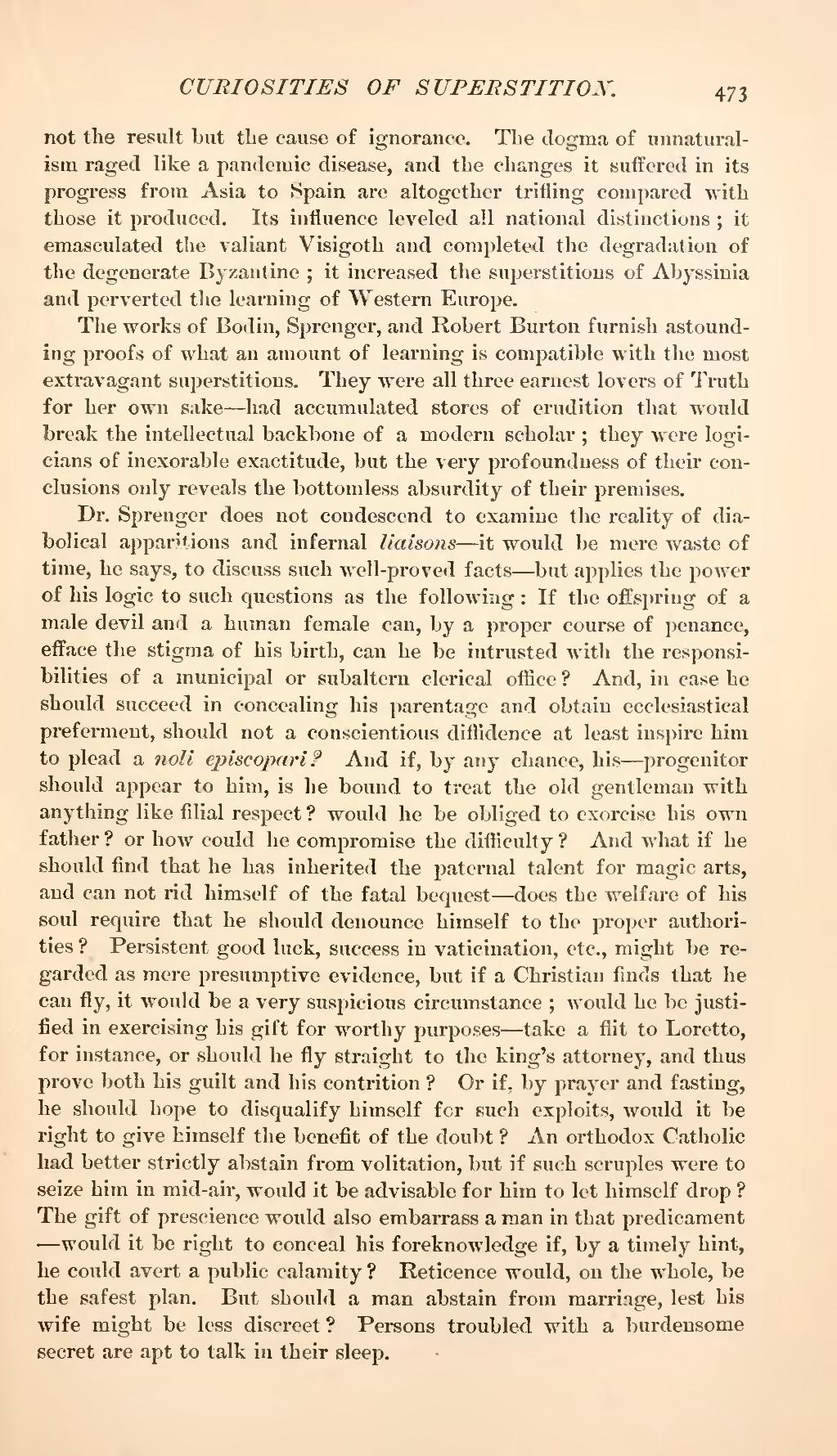not the result but the cause of ignorance. The dogma of unnaturalism raged like a pandemic disease, and the changes it suffered in its progress from Asia to Spain are altogether trifling compared with those it produced. Its influence leveled all national distinctions; it emasculated the valiant Visigoth and completed the degradation of the degenerate Byzantine; it increased the superstitions of Abyssinia and perverted the learning of Western Europe.
The works of Bodin, Sprenger, and Robert Burton furnish astounding proofs of what an amount of learning is compatible with the most extravagant superstitions. They were all three earnest lovers of Truth for her own sake—had accumulated stores of erudition that would break the intellectual backbone of a modern scholar; they were logicians of inexorable exactitude, but the very profoundness of their conclusions only reveals the bottomless absurdity of their premises.
Dr. Sprenger does not condescend to examine the reality of diabolical apparitions and infernal liaisons—it would be mere waste of time, he says, to discuss such well-proved facts—but applies the power of his logic to such questions as the following: If the offspring of a male devil and a human female can, by a proper course of penance, efface the stigma of his birth, can he be intrusted with the responsibilities of a municipal or subaltern clerical office? And, in case he should succeed in concealing his parentage and obtain ecclesiastical preferment, should not a conscientious diffidence at least inspire him to plead a noli episcopari? And if, by any chance, his—progenitor should appear to him, is he bound to treat the old gentleman with anything like filial respect? would he be obliged to exorcise his own father? or how could he compromise the difficulty? And what if he should find that he has inherited the paternal talent for magic arts, and can not rid himself of the fatal bequest—does the welfare of his soul require that he should denounce himself to the proper authorities? Persistent good luck, success in vaticination, etc., might be regarded as mere presumptive evidence, but if a Christian finds that he can fly, it would be a very suspicious circumstance; would he be justified in exercising his gift for worthy purposes—take a flit to Loretto, for instance, or should he fly straight to the king's attorney, and thus prove both his guilt and his contrition? Or if. by prayer and fasting, he should hope to disqualify himself for such exploits, would it be right to give himself the benefit of the doubt? An orthodox Catholic had better strictly abstain from volitation, but if such scruples were to seize him in mid-air, would it be advisable for him to let himself drop? The gift of prescience would also embarrass a man in that predicament—would it be right to conceal his foreknowledge if, by a timely hint, he could avert a public calamity? Reticence would, on the whole, be the safest plan. But should a man abstain from marriage, lest his wife might be less discreet? Persons troubled with a burdensome secret are apt to talk in their sleep.

